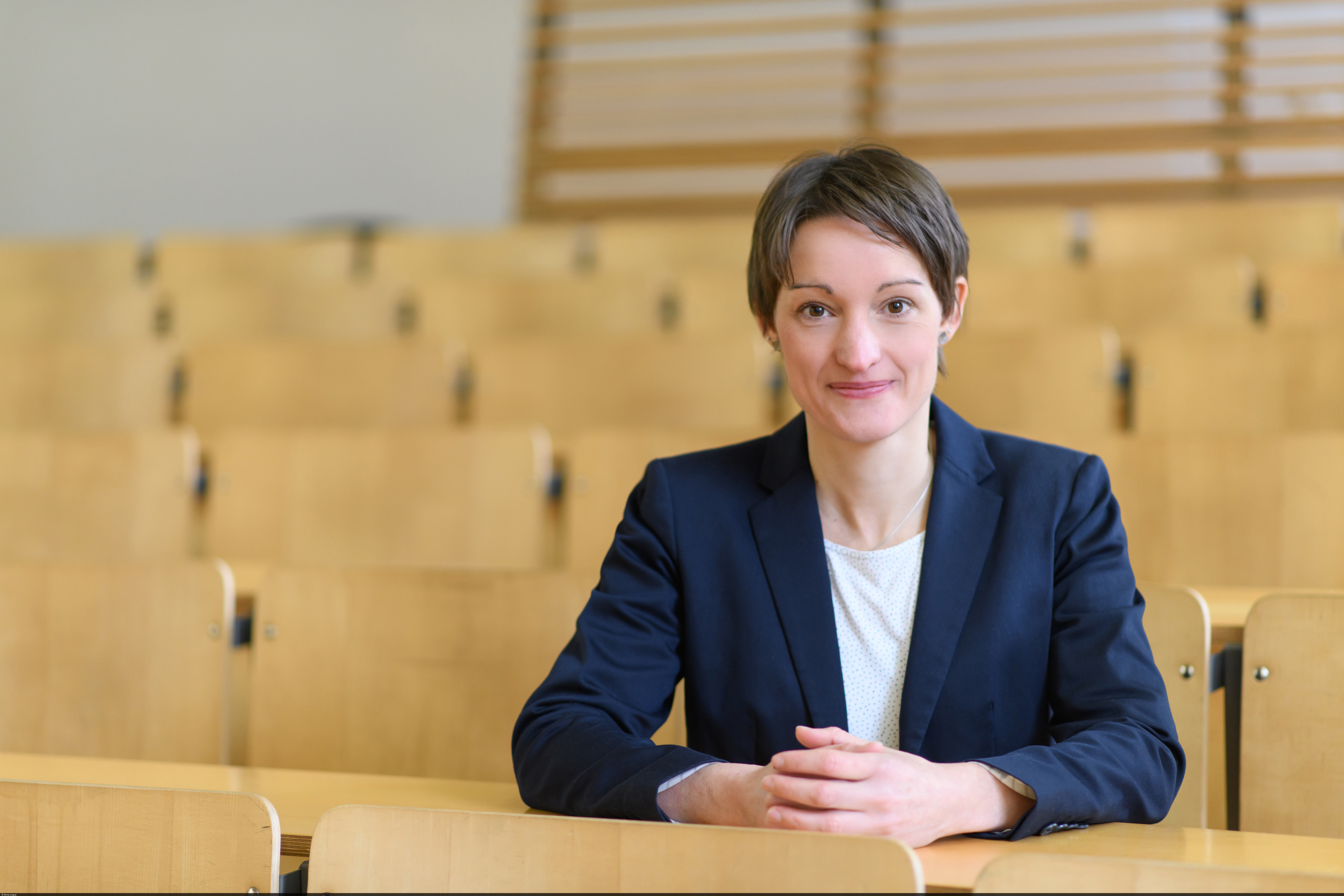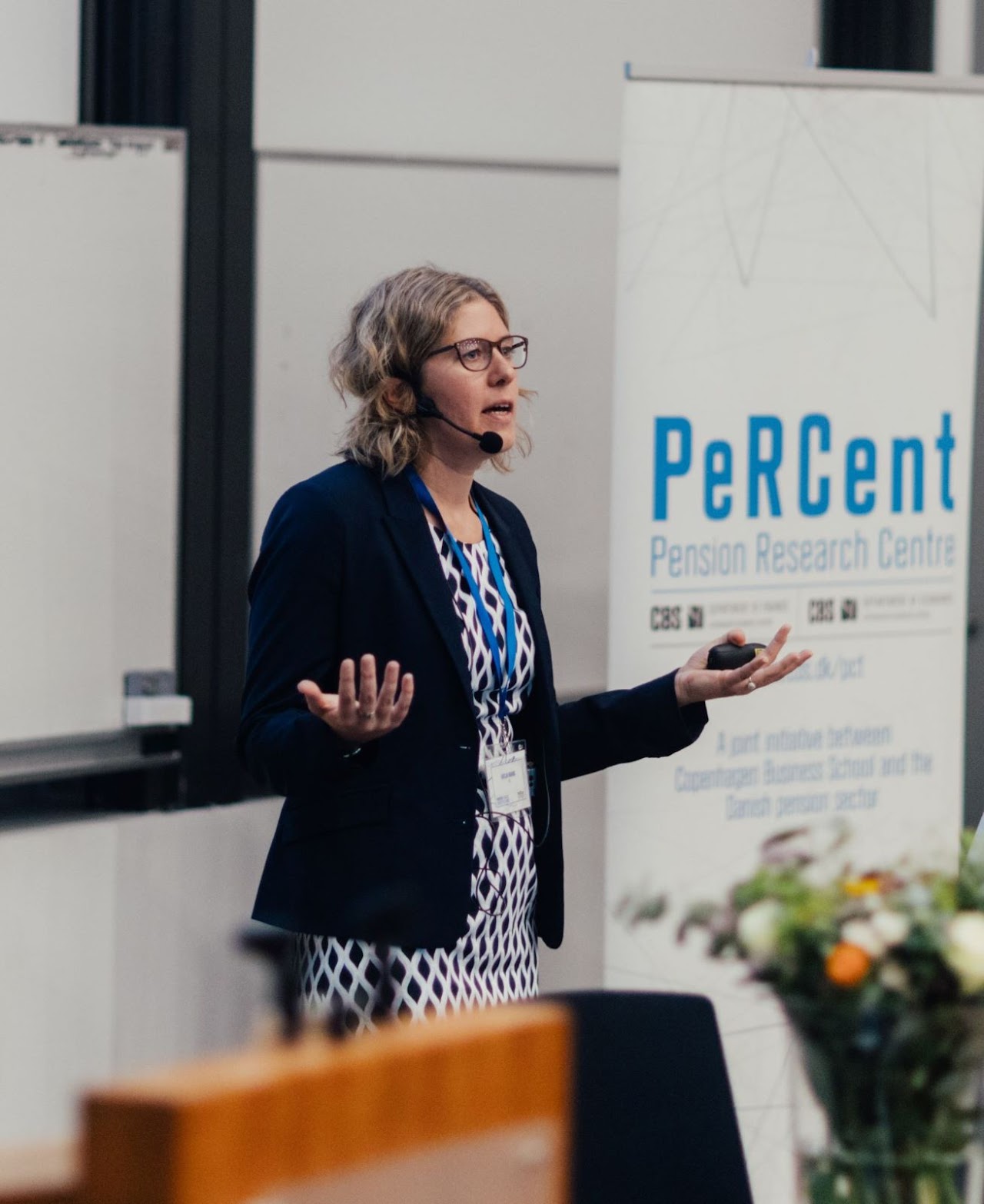
8th International Pension Research Association (IPRA) Conference
Date: 14 June 2023
The International Pension Research Association (IPRA) conference, co-hosted by IPRA in collaboration with its founding organisations, will take place in June 2023 at the OECD in Paris/France.*
This is an IPRA Members and by invitation conference. If you have any enquiries or would like to express your interest to attend the conference, please contact us.
IPRA is an international organisation established with the aim of improving the quality and impact of research on pensions and related ageing issues to optimise social and economic outcomes for an ageing world. Its inaugural executive committee comprises representatives of the ARC Centre of Excellence in Population Ageing Research (CEPAR, headquartered at UNSW Sydney), the International Organisation of Pension Supervisors (IOPS), Netspar at Tilburg University, the Pension Research Council at the Wharton School of the University of Pennsylvania, WTW, and the OECD.
To join IPRA, please sign up here. For more information, including upcoming IPRA events, visit iprassn.org.
|
14 June 2023 (Time zone in Paris, France (CEST, GMT+2) |
|
| 8:15-9:15 | Arrival and Registration (tea, coffee and croissants will be available) |
|
9:15-9:30 |
WELCOME AND INTRODUCTORY REMARKS Hazel Bateman, IPRA President, CEPAR, UNSW Sydney Flore-Anne Messy, IOPS Secretary General Sedar Celik, OECD |
|
9:30-11:00 |
SESSION 1: NEW DEVELOPMENTS IN DECUMULATION Chair: Olivia S. Mitchell (Pension Research Council, Wharton School, University of Pennsylvania) |
|
9:30-9:50 |
James Banks (Manchester University, UK) |
|
9:50-10:10 |
Testing Methods to Enhance Longevity Awareness Abigail Hurwitz (Hebrew University of Jerusalem, Israel) |
| 10:10-10:30 |
The Role of Tontines in Retirement Decumulation Peter Hieber (University of Lausanne, Switzerland) |
|
11:00-11:30 |
Morning Tea |
|
11:30-12:30 |
SESSION 2: KEYNOTE PRESENTATION Chair: Mike Orszag (WTW) |
|
11:30-12:15 |
Climate Risks and the Global Economy Warwick McKibbin (CEPAR, CAMA, Australian National University, Australia) |
|
|
|
|
12:30-13:30 |
Lunch |
|
13:30-15:00 |
SESSION 3: CURRENT ISSUES IN PENSIONS Chair: Hazel Bateman (CEPAR, UNSW Sydney) |
|
13:30-13:50 |
Eliciting Pension Beneficiaries’ Sustainability Preferences Peiran Jiao (Maastricht University, The Netherlands) |
|
13:50-14:10 |
Disparities in Financial Literacy, Pension Planning and Saving Behaviour Tabea Bucher-Koenen (University of Mannheim and Max Planck Institute, Germany) |
|
14:10-14:30 |
How the Pandemic altered American’s Debt Burden and Retirement Readiness Olivia S. Mitchell (Pension Research Council, Wharton School, University of Pennsylvania, USA) |
|
|
|
|
15:00-15:20 |
Afternoon Tea |
|
15:20-16:50 |
SESSION 4: ASSET-BACKED PENSIONS Chair: Pablo Antolin (OECD) |
|
15:20-15:40 |
Experience and Challenges with Asset-Backed Pensions in Developing Countries Philip O’Keefe (Ageing Asia Research Hub, CEPAR, UNSW Sydney, Australia) |
|
15:40-16:00 |
Pension Reform and Wealth Inequality: Theory and Evidence Katja Mann (Copenhagen Business School, Denmark) |
|
16:00-16:20 |
An Assessment Of Dutch Pension Reform Bas Werker (Tilburg University, The Netherlands) |
|
16:20-16:50 |
Combined Q&A discussion |
|
16:50-17:00
|
CLOSING REMARKS Ambrogio Rinaldi, IOPS President |
Abstracts and bios
Managing Retirement Incomes: Financial Literacy, Cognitive Decline and Retirement Wealth Decumulation Choices
James Banks (Manchester University, UK)
Abstract: Once individuals retire from the labour market they face choices about whether, and if so how, to annuitise their accumulated wealth or some fraction of it. This needs to be done in the context of decisions on how to manage their housing equity and a diverse set of other retirement resources and needs such as health and long term care insurance, life insurances and bequests. These decisions are only becoming more important as private savings and DC wealth form a greater proportion of the retirement wealth of newly retiring cohorts, but at the same time these younger cohorts of retirees are living much longer to the point that many can expect to be living with cognitive decline. In this paper I discuss evidence on cognition and financial literacy in the decumulation stage of the lifecycle and argue that much more analysis and evidence is needed in order for research to be able to inform policy.
 James Banks is Professor of Economics at the University of Manchester and Senior Research Fellow at IFS where he is Co-Director of the Centre for the Microeconomic Analysis of Public Policy. His research focuses on empirical modelling of individual economic behaviour over the life-cycle. His early work focused on consumption and spending patterns, asset accumulation and pension choices. Subsequently he has worked on broader issues in the economics of ageing, such as health, physical and cognitive functioning and their association with labour market and broader socioeconomic status, and the dynamics of work disability. James is Co-Principal Investigator of the English Longitudinal Study of Ageing and is actively involved in working with policy makers and research funders on activities related to the ongoing collection and use of individual level survey evidence. He has served on expert advisory committees for the Department for Work and Pensions, Department for Health, Government Office for Science, Office for National Statistics, Economic and Social Research Council, Wellcome Foundation, and the US National Institute on Aging.
James Banks is Professor of Economics at the University of Manchester and Senior Research Fellow at IFS where he is Co-Director of the Centre for the Microeconomic Analysis of Public Policy. His research focuses on empirical modelling of individual economic behaviour over the life-cycle. His early work focused on consumption and spending patterns, asset accumulation and pension choices. Subsequently he has worked on broader issues in the economics of ageing, such as health, physical and cognitive functioning and their association with labour market and broader socioeconomic status, and the dynamics of work disability. James is Co-Principal Investigator of the English Longitudinal Study of Ageing and is actively involved in working with policy makers and research funders on activities related to the ongoing collection and use of individual level survey evidence. He has served on expert advisory committees for the Department for Work and Pensions, Department for Health, Government Office for Science, Office for National Statistics, Economic and Social Research Council, Wellcome Foundation, and the US National Institute on Aging.
Testing Methods to Enhance Longevity Awareness
Abigail Hurwitz (Hebrew University of Jerusalem, Israel)
Abstract: Many people do not understand the concepts of life expectancy and longevity risk, potentially leading them to under-save for retirement or to not purchase longevity insurance, which in turn could reduce wellbeing at older ages. We investigate alternative ways to increase the salience of both concepts, allowing us to assess whether these change peoples’ perceptions and financial decision making. Using randomly-assigned vignettes providing subjects with information about either life expectancy or longevity, we show that merely prompting people to think about financial decisions changes their perceptions regarding subjective survival probabilities. Moreover, this information also boosts respondents’ interest in saving and demand for longevity insurance. In particular, longevity information influences both subjective survival probabilities and financial decisions, while life expectancy information influences only annuity choices. We provide some evidence that many people are simply unaware of longevity risk.
 Dr. Abigail Hurwitz is an Assistant Professor at the Hebrew University of Jerusalem. Her research is dedicated to long term saving, consumption and annuity choices. She seeks to better understand financial behavior in order to influence policy as well as to develop and promote savings products and to increase the demand for annuities. Hurwitz has recently worked on projects focused on mandatory annuitization in Israel. Her research also focuses on life and health subjective perceptions and how to influence them in order to enhance saving behavior. Hurwitz holds a Ph.D. in Finance as well as an M.A. and B.A. in Business and Economics from the Hebrew University of Jerusalem. She was previously a Postdoctoral visiting scholar at the Wharton school of the University of Pennsylvania.
Dr. Abigail Hurwitz is an Assistant Professor at the Hebrew University of Jerusalem. Her research is dedicated to long term saving, consumption and annuity choices. She seeks to better understand financial behavior in order to influence policy as well as to develop and promote savings products and to increase the demand for annuities. Hurwitz has recently worked on projects focused on mandatory annuitization in Israel. Her research also focuses on life and health subjective perceptions and how to influence them in order to enhance saving behavior. Hurwitz holds a Ph.D. in Finance as well as an M.A. and B.A. in Business and Economics from the Hebrew University of Jerusalem. She was previously a Postdoctoral visiting scholar at the Wharton school of the University of Pennsylvania.
The Role of Tontines in Retirement Decumulation
Peter Hieber (University of Lausanne, Switzerland)
Abstract: The 2019 introduction of the pan-European personal pension product (PEPP) regulation responds to demographic challenges in Europe and aims to support the introduction of transparent and cost-efficient voluntary pension products. Mutual insurance schemes like tontines are a promising way to implement such schemes. This talk reviews possible ways to define cash-flows in the decumulation phase, sharing mortality risks within a tontine pool of individuals of different age and risk characteristics. We specifically discuss actuarial fairness, the choice and update of mortality tables and the possibility of individuals to later join the scheme. We also demonstrate how the tontine can be complemented by a long-term care rider that provides higher payments in case of dependency (= life-care tontine).
Peter Hieber is assistant professor of life and pension insurance at the University of Lausanne in Switzerland. His research focuses on pension design, equity-linked life insurance and P2P insurance and has appeared in the leading international actuarial journals. He holds a PhD in Mathematical Finance from the Technical University of Munich, is a qualified actuary and member of the German and Swiss actuarial societies.
His research on mutual insurance schemes and tontines has received the 2021 ASTIN-AFIR and the 2019 ASTIN-PBSS best paper awards by the International Actuarial Association (IAA).
Climate Risks and the Global Economy
Warwick McKibbin (CEPAR, CAMA, Australian National University, Australia)
(based on a joint paper with Roshen Fernando and Weifeng Liu)
Abstract: This presentation assesses the global economic consequences of climate-related risks in three broad areas: (1) the macroeconomic impacts of physical chronic and extreme climate risks; (2) the macroeconomic effects of climate policies designed to transition to net zero emissions by 2050 (transition risk); and (3) the potential macroeconomic consequences of changes in risk premia in financial markets associated with increasing concern over climate events.
We consider three widely used climate scenarios (Representative Concentration Pathways, or RCP), and identify the physical damage functions due to chronic climate risks: sea-level rise, crop yield changes, heat-induced impacts on labor, and increased incidence of diseases. We also estimate the future incidence of climate-related extreme events: droughts, floods, heat waves, cold waves, storms and wildfires, using climatic variables under the climate scenarios.
Professor Warwick J. McKibbin, AO, FASSA is a Distinguished Professor of Economics and Public Policy and Director of the Centre for Applied Macroeconomic Analysis (CAMA) in the Crawford School of Public Policy at the Australian National University (ANU). He is also Director of Policy Engagement and ANU Node Leader of the Australian Research Council, Centre of Excellence in Population Ageing Research (CEPAR) and Director of Research at McKibbin Software Group Pty Ltd. Professor McKibbin is a Distinguished Public Policy Fellow of the Economic Society of Australia; a Distinguished Fellow of the Asia and Pacific Policy Society; a Fellow of the Centre for Economic Policy Research (London) and a Non-Resident Senior Fellow at the Brookings Institution in Washington D.C (in the Center on Regulation and Markets and the Hutchins Center on Fiscal and Monetary Policy ). He was awarded the Order of Australia in 2016 “For Distinguished Service to Education as an Economist, Particularly in the Area of Global Climate Policy, and to Financial Institutions and International Organizations” and the Centenary medal in 2003 “For Service to Australian Society through Economic Policy and Tertiary Education”.
Professor McKibbin is internationally renowned for his contributions to global economic modeling, the theory of monetary policy, climate change policy and economic modeling of pandemics. He has published more than 240 peer reviewed academic papers and 6 books as well as being a regular commentator in the popular press. He served on the Board of the Reserve Bank of Australia from 2001 to 2011 and worked at the Reserve Bank from 1975 to 1991. He regularly advises international institutions, Central Banks, governments and corporations across a range of developed and emerging economies.
Eliciting Pension Beneficiaries’ Sustainability Preferences
Peiran Jiao (Maastricht University, The Netherlands)
Abstract: We explore whether and how beneficiaries of pension plans should have a voice in the fund’s sustainable investments. We hypothesize that the answer to this question depends on a fund’s legal and societal contexts, benchmarking pressure, and fund-specific factors such as the fund’s size and the board’s composition. We uncover heterogeneity in the degree to which beneficiaries are involved in the decision-making. Some pension funds have started a dialogue with their participants, mainly using survey instruments. We provide some examples of funds that gave its participants a real vote or similar, while avoiding the pitfalls that come with hypothetical surveys on individual preferences.
 Dr Peiran Jiao is an Associate Professor of Finance at the Department of Finance, School of Business and Economics, Maastricht University (UM). He is also an Associated Fellow at Nuffield College, University of Oxford, Associated Member of the Nuffield Centre for Experimental Social Sciences (CESS) and the Director of the Maastricht University Behavioral Insights Centre (UM-BIC). Before joining UM, Dr. Jiao was a Postdoctoral Research Fellow in the Department of Economics and Nuffield College, University of Oxford from 2014 to 2017. He obtained his PhD degree in Economics from Claremont Graduate University (CA, USA) in 2014. His research mainly focuses on behavioral and experimental finance/economics. His research papers traverse a number of disciplines, such as economics, finance, psychology and neuroscience, with a mixture of theoretical, empirical and experimental approaches.
Dr Peiran Jiao is an Associate Professor of Finance at the Department of Finance, School of Business and Economics, Maastricht University (UM). He is also an Associated Fellow at Nuffield College, University of Oxford, Associated Member of the Nuffield Centre for Experimental Social Sciences (CESS) and the Director of the Maastricht University Behavioral Insights Centre (UM-BIC). Before joining UM, Dr. Jiao was a Postdoctoral Research Fellow in the Department of Economics and Nuffield College, University of Oxford from 2014 to 2017. He obtained his PhD degree in Economics from Claremont Graduate University (CA, USA) in 2014. His research mainly focuses on behavioral and experimental finance/economics. His research papers traverse a number of disciplines, such as economics, finance, psychology and neuroscience, with a mixture of theoretical, empirical and experimental approaches.
Disparities in Financial Literacy, Pension Planning and Saving Behaviour
Tabea Bucher-Koenen (University of Mannheim and Max Planck Institute, Germany)
Abstract: Financial literacy affects wealth accumulation, and pension planning plays a key role in this relationship. In a large field experiment, we employ a digital pension aggregation tool to confront a treatment group with a simplified overview of their current pension claims across all pillars of the pension system. We combine survey and administrative bank data to measure the effects on actual saving behavior. Access to the tool decreases pension uncertainty for treated individuals. Average savings increase - especially for the financially less literate. We conclude that simplification of pension information can potentially reduce disparities in pension planning and savings behaviour.
 Professor Tabea Bucher-Koenen has been head of ZEW’s Research Unit “Pensions and Sustainable Financial Markets” since January 2019. She is professor of financial markets at the University of Mannheim and co-director of the Mannheim Institute for Financial Education (MIFE). Tabea Bucher-Koenen studied business and intercultural management at Friedrich Schiller University Jena, as well as European integration at the University of Kent at Canterbury, UK. She followed the graduate programme in economics at the Center for Doctoral Studies at the University of Mannheim and received her doctoral degree in 2010. From 2011 to 2018 she was a researcher at the Munich-based Max Planck Institute for Social Law and Social Policy. Tabea Bucher-Koenen’s research focuses on household finance, the economics of ageing, and demographic change. She is particularly interested in private and public pension systems and the impact of long-term financial decisions. Her most recent publications focus on individual savings behaviour and insurance decisions, as well on financial literary. Tabea Bucher-Koenen published her work in journals such as Review of Finance, Economic Policy, the Journal of Pension Economics, and Finance and the Journal of Consumer Affairs.
Professor Tabea Bucher-Koenen has been head of ZEW’s Research Unit “Pensions and Sustainable Financial Markets” since January 2019. She is professor of financial markets at the University of Mannheim and co-director of the Mannheim Institute for Financial Education (MIFE). Tabea Bucher-Koenen studied business and intercultural management at Friedrich Schiller University Jena, as well as European integration at the University of Kent at Canterbury, UK. She followed the graduate programme in economics at the Center for Doctoral Studies at the University of Mannheim and received her doctoral degree in 2010. From 2011 to 2018 she was a researcher at the Munich-based Max Planck Institute for Social Law and Social Policy. Tabea Bucher-Koenen’s research focuses on household finance, the economics of ageing, and demographic change. She is particularly interested in private and public pension systems and the impact of long-term financial decisions. Her most recent publications focus on individual savings behaviour and insurance decisions, as well on financial literary. Tabea Bucher-Koenen published her work in journals such as Review of Finance, Economic Policy, the Journal of Pension Economics, and Finance and the Journal of Consumer Affairs.
How the Pandemic altered American’s Debt Burden and Retirement Readiness
Olivia S. Mitchell (Pension Research Council, Wharton School, University of Pennsylvania, USA)
Abstract: This paper analyzes Americans’ perceptions of being debt-constrained and explores which population subgroups reported feeling most debt-constrained, how this perception was impacted by the COVID-19 pandemic, and how it relates to financial literacy and retirement readiness. To this end, we analyze two datasets, namely the 2020 and 2021 TIAA Institute-GFLEC Personal Finance Index files (P-Fin Index). The evidence shows that, prior to and during the pandemic, one in three American adults felt constrained by their debt. The percentage was even higher among vulnerable subgroups such as Black and Hispanic individuals, those lacking a bachelor’s degree, those with lower incomes, and those with low levels of financial literacy. Being debt-constrained also has long-term financial consequences, as it is negatively linked to planning and saving for retirement. Finally, we show that financial literacy has a strong connection to both debt and retirement money management, confirming that financial knowledge is essential if people are to be able to manage their debt and build financial well-being.
 Dr. Olivia S. Mitchell is International Foundation of Employee Benefit Plans Professor of Insurance/Risk Management & Business Economics/Policy; Executive Director of the Pension Research Council; and Director of the Boettner Center on Pensions and Retirement Research; all at the Wharton School of the University of Pennsylvania. Concurrently she is also Research Associate at the NBER; Independent Director of the Allspring Mutual Fund Boards; HRS Co-Investigator at the University of Michigan; and Executive Board member of the Michigan Retirement Research Center; she also recently served as Vice President of the American Economic Association. Her research focuses on pensions, risk management, financial literacy, household finance, and public finance. She was awarded the FINRA Investor Education Foundation Ketchum Prize; the Fidelity Pyramid Prize for research improving lifelong financial well-being; the Carolyn Shaw Bell Award of the Committee on the Status of Women in the Economics Profession; the Roger F. Murray First Prize (twice) from the Institute for Quantitative Research in Finance; and the Premio Internazionale Dell’Istituto Nazionale Delle Assicurazioni from the Accademia Nazionale dei Lincei. Her study of Social Security reform won the Paul Samuelson Award for “Outstanding Writing on Lifelong Financial Security” from TIAA-CREF. Most recently, she received the 2021 Robert C. Witt Award and the 2022 Kulp-Wright Book Award from the American Risk and Insurance Association, and the 2023 Best Paper Award from the Cherry Blossom Financial Literacy Conference. She earned her MA and PhD degrees in Economics from the University of Wisconsin-Madison, and her BA with honors in Economics from Harvard University. For additional information, please see: https://bepp.wharton.upenn.edu/profile/719/
Dr. Olivia S. Mitchell is International Foundation of Employee Benefit Plans Professor of Insurance/Risk Management & Business Economics/Policy; Executive Director of the Pension Research Council; and Director of the Boettner Center on Pensions and Retirement Research; all at the Wharton School of the University of Pennsylvania. Concurrently she is also Research Associate at the NBER; Independent Director of the Allspring Mutual Fund Boards; HRS Co-Investigator at the University of Michigan; and Executive Board member of the Michigan Retirement Research Center; she also recently served as Vice President of the American Economic Association. Her research focuses on pensions, risk management, financial literacy, household finance, and public finance. She was awarded the FINRA Investor Education Foundation Ketchum Prize; the Fidelity Pyramid Prize for research improving lifelong financial well-being; the Carolyn Shaw Bell Award of the Committee on the Status of Women in the Economics Profession; the Roger F. Murray First Prize (twice) from the Institute for Quantitative Research in Finance; and the Premio Internazionale Dell’Istituto Nazionale Delle Assicurazioni from the Accademia Nazionale dei Lincei. Her study of Social Security reform won the Paul Samuelson Award for “Outstanding Writing on Lifelong Financial Security” from TIAA-CREF. Most recently, she received the 2021 Robert C. Witt Award and the 2022 Kulp-Wright Book Award from the American Risk and Insurance Association, and the 2023 Best Paper Award from the Cherry Blossom Financial Literacy Conference. She earned her MA and PhD degrees in Economics from the University of Wisconsin-Madison, and her BA with honors in Economics from Harvard University. For additional information, please see: https://bepp.wharton.upenn.edu/profile/719/
Experience and Challenges with Asset-Backed Pensions in Developing Countries
Philip O’Keefe (Ageing Asia Research Hub, CEPAR, UNSW Sydney, Australia)
 Philip (Pip) O'Keefe is Professor of Practice and Director of the Ageing Asia Research Hub at CEPAR. Prior to joining CEPAR, he worked from 1993-2021 at the World Bank, based in Washington D.C., Beijing, New Delhi, Sydney and Budapest. He worked in East Asia and Pacific, South Asia, and Eastern Europe and Central Asia regions, most recently as Practice Manager for Social Protection and Jobs for EAP region. During his World Bank career, he was regional Lead Human Development Economist for EAP, and Lead Economist in EAP and SAR. He was a core team member on numerous flagship World Bank publications, including the EAP Regional Ageing report, China 2030 (co-authored with the Development Research Centre of the State Council of China), and Protecting All, a global strategy on the future of social protection systems in a changing world of work. He also led policy dialogue with governments and managed budget support and investment lending operations across Asia and ECA regions. Prior to joining the World Bank, he was Lecturer at the University of Warwick, UK, focusing on international economic law.
Philip (Pip) O'Keefe is Professor of Practice and Director of the Ageing Asia Research Hub at CEPAR. Prior to joining CEPAR, he worked from 1993-2021 at the World Bank, based in Washington D.C., Beijing, New Delhi, Sydney and Budapest. He worked in East Asia and Pacific, South Asia, and Eastern Europe and Central Asia regions, most recently as Practice Manager for Social Protection and Jobs for EAP region. During his World Bank career, he was regional Lead Human Development Economist for EAP, and Lead Economist in EAP and SAR. He was a core team member on numerous flagship World Bank publications, including the EAP Regional Ageing report, China 2030 (co-authored with the Development Research Centre of the State Council of China), and Protecting All, a global strategy on the future of social protection systems in a changing world of work. He also led policy dialogue with governments and managed budget support and investment lending operations across Asia and ECA regions. Prior to joining the World Bank, he was Lecturer at the University of Warwick, UK, focusing on international economic law.
Pension Reform and Wealth Inequality: Theory and Evidence
Katja Mann (Copenhagen Business School, Denmark)
Abstract: Pension systems are of crucial importance for life-cycle savings. Since the early 2000s, a transition to a multi-pillar architecture, adding a funded occupational scheme to existing public plans, has been underway in almost every OECD nation. While many aspects of this transition - its financing, riskiness, political economy - have been studied, the extant literature ignores its effects on wealth accumulation and inequality. This paper develops a simple life-cycle model that lays bare the main mechanisms connecting pension systems, asset accumulation, and distribution. Notably, mandated fully-funded plans convert low-income people (often low savers) to asset owners, increasing net saving and reducing wealth disparities. These mechanisms are quantitatively explored using a calibrated life-cycle model of Denmark employing unique registry data. The Danish pension system transition explains much of the recent decline in Danish wealth inequality.
 Katja Mann is an Assistant Professor at Copenhagen Business School and a member of the Pension Research Centre (PeRCent) at CBS. Her research focuses on some of the biggest macroeconomic challenges of the 21st century: Automation technology and the future of work, demographic aging with its implications for pension systems and global capital flows, and inequality. Most of her recent work combines macro models with micro data.
Katja Mann is an Assistant Professor at Copenhagen Business School and a member of the Pension Research Centre (PeRCent) at CBS. Her research focuses on some of the biggest macroeconomic challenges of the 21st century: Automation technology and the future of work, demographic aging with its implications for pension systems and global capital flows, and inequality. Most of her recent work combines macro models with micro data.
An Assessment Of Dutch Pension Reform
Bas Werker (Tilburg University, The Netherlands)
Abstract: Like many countries, the Netherlands is transitioning from a DB system to DC. Unlike many other countries, the DC system contains many risk sharing elements (compulsory longevity risk sharing, intergenerational risk sharing, …). We will discuss the design of the new system and the intention to convert all existing DB entitlements to DC entitlements.
 Bas Werker is professor of Finance and Econometrics at Tilburg University. His research interests cover various fields in asset pricing and asymptotic statistics. He has published work in journals as the Annals of Statistics, the Journal of Econometrics, the Journal of Finance and the Review of Financial Studies. He's currently associate editor for the Journal of Econometrics and the Journal of Financial Econometrics. In the past he has been affiliated to Université de Sciences Sociales in Toulouse and the Université Libre de Bruxelles. He has taught courses in econometrics, investment analysis, and statistics at both the undergraduate and graduate level in various schools around the world. Moreover he supervises several Ph.D. students. He is a Fellow of the Society for Financial Econometrics and Netspar researcher coordinator. Bas Werker's societal research interests are in pension system design and data science applications.
Bas Werker is professor of Finance and Econometrics at Tilburg University. His research interests cover various fields in asset pricing and asymptotic statistics. He has published work in journals as the Annals of Statistics, the Journal of Econometrics, the Journal of Finance and the Review of Financial Studies. He's currently associate editor for the Journal of Econometrics and the Journal of Financial Econometrics. In the past he has been affiliated to Université de Sciences Sociales in Toulouse and the Université Libre de Bruxelles. He has taught courses in econometrics, investment analysis, and statistics at both the undergraduate and graduate level in various schools around the world. Moreover he supervises several Ph.D. students. He is a Fellow of the Society for Financial Econometrics and Netspar researcher coordinator. Bas Werker's societal research interests are in pension system design and data science applications.
Supported by

For event enquiries or to discuss your access requirements, please call +61 2 9385 7359 or email cepar@unsw.edu.au.
The CEPAR team is happy to receive phone calls via the National Relay Service. TTY users, phone 133 677, then ask for 02 9385 7359. Speak and Listen users, phone 1300 555 727 then ask for 02 9385 7359. Internet relay users, visit relayservice.gov.au, then ask for 02 9385 7359.
*At this stage the event is planned to take place in-person, in compliance with any pandemic-related government or university restrictions that may be in place at the time. CEPAR will monitor the developing situation and, should circumstances necessitate, the format may be converted to a mix of online and in-person or entirely online participation.
